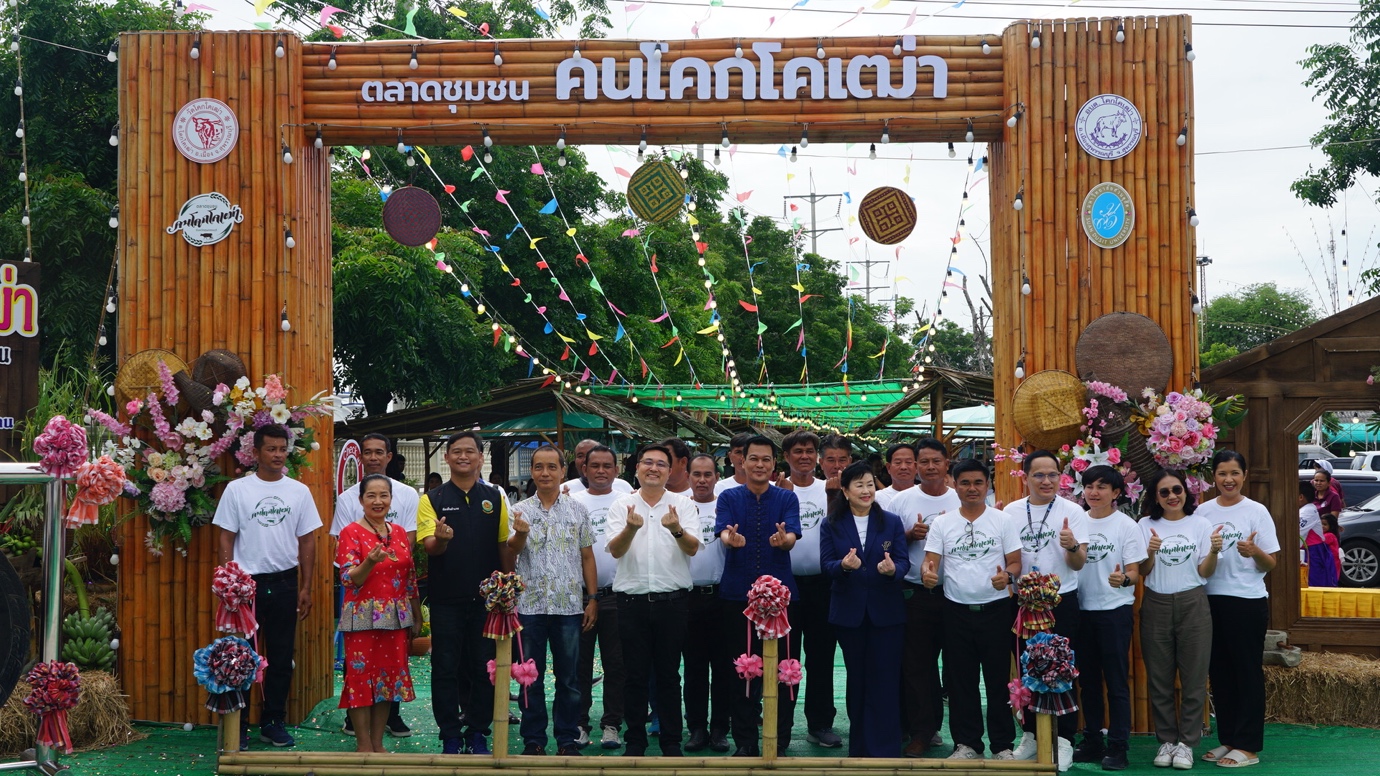
Suan Dusit University, Suphan Buri Campus, has established a strong commitment to promoting collaboration with local communities in maintaining and revitalizing shared land ecosystems through activities that integrate ecological preservation, cultural heritage, and sustainable local economies. A clear example of this collaborative engagement is the “Khok Khok Thao Community Market” initiative, held on 21 July 2024 at Wat Khok Khok Thao in Mueang Suphan Buri District. This project reflects the university’s role as a catalyst in connecting academic knowledge with community-driven environmental stewardship and sustainable land management.
The event was jointly organized by Suan Dusit University, Suphan Buri Campus, in collaboration with the Khok Khok Thao Subdistrict Administrative Organization, Wat Khok Khok Thao, and members of the Khok Khok Thao community, with active participation from government representatives and local stakeholders. The market aimed to create a green community economy that promotes sustainable livelihoods while conserving local biodiversity and maintaining the ecological integrity of shared community spaces. The initiative exemplifies how shared land ecosystems—such as temple grounds, agricultural areas, and public green spaces—can serve as collaborative platforms for education, commerce, and cultural expression.
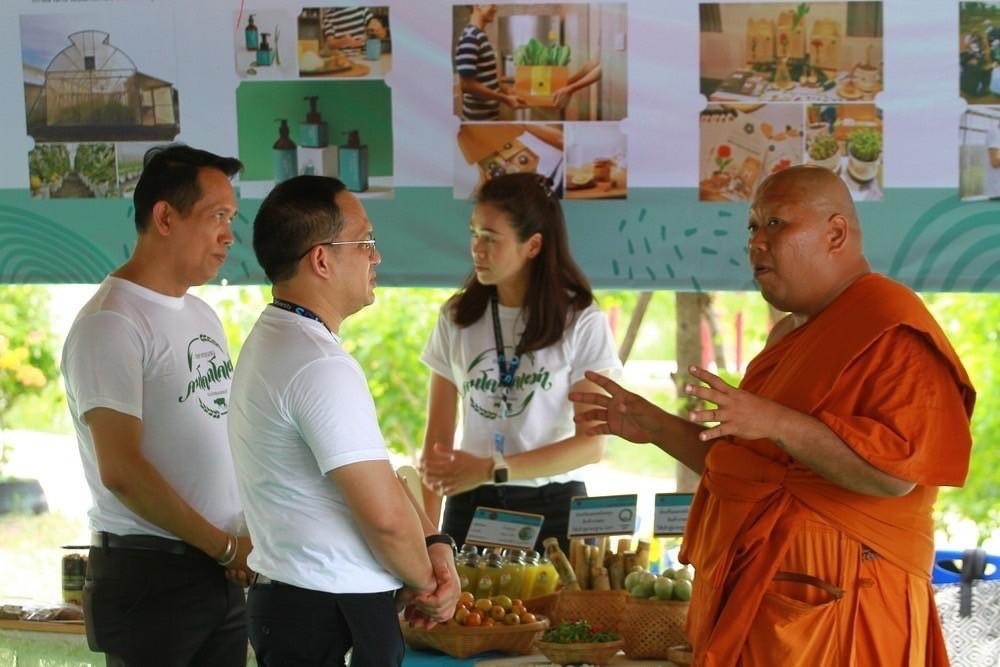
The community market featured 33 local vendors offering agricultural products, organic foods, and community-based crafts that highlight the region’s agro-biodiversity and cultural identity. By promoting the use of local biodiversity in production and trade, the project encouraged sustainable consumption patterns and helped preserve traditional plant varieties and agricultural practices. These activities also contributed to the sustainable use of land by integrating ecological awareness into local economic systems, thus linking biodiversity conservation with community well-being.
In addition to its environmental and economic impact, the event celebrated the cultural landscape of Suphan Buri Province through traditional music, folk performances, and art exhibitions. These elements emphasized the interconnectedness between people, land, and culture—core principles of sustainable development that guide the university’s community engagement strategies. Through such events, the university helps local residents recognize the cultural and ecological value of their shared spaces, strengthening the relationship between human activity and the natural environment.
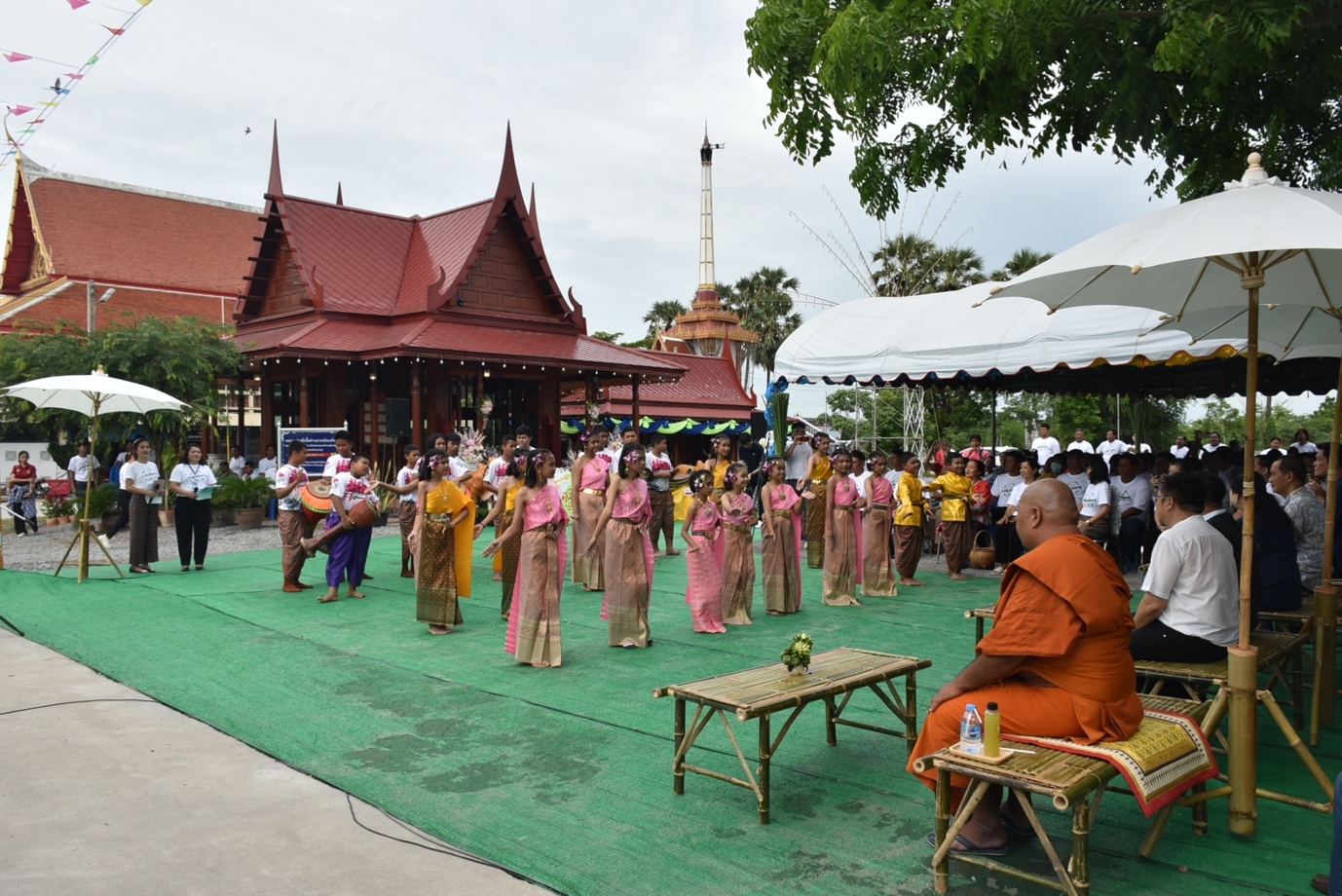
As a collaborative facilitator, Suan Dusit University connected its academic and research expertise with community initiatives to co-create sustainable solutions. The event drew on knowledge and resources from the Institute for Research and Development and the Hom Kachorn Farm Project, which provided insights into sustainable agriculture, product innovation, and environmental design. These partnerships demonstrated how academic institutions can contribute to ecosystem-based development by empowering communities to manage land and resources responsibly.
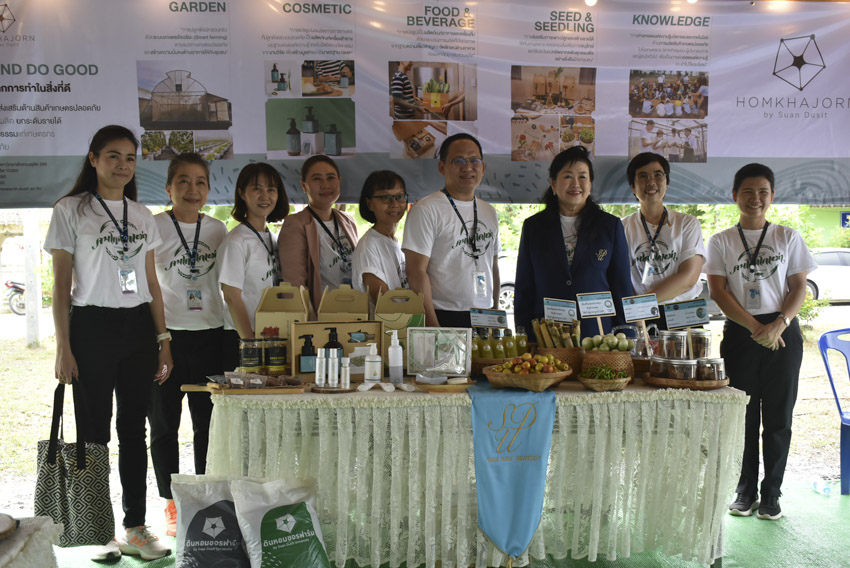
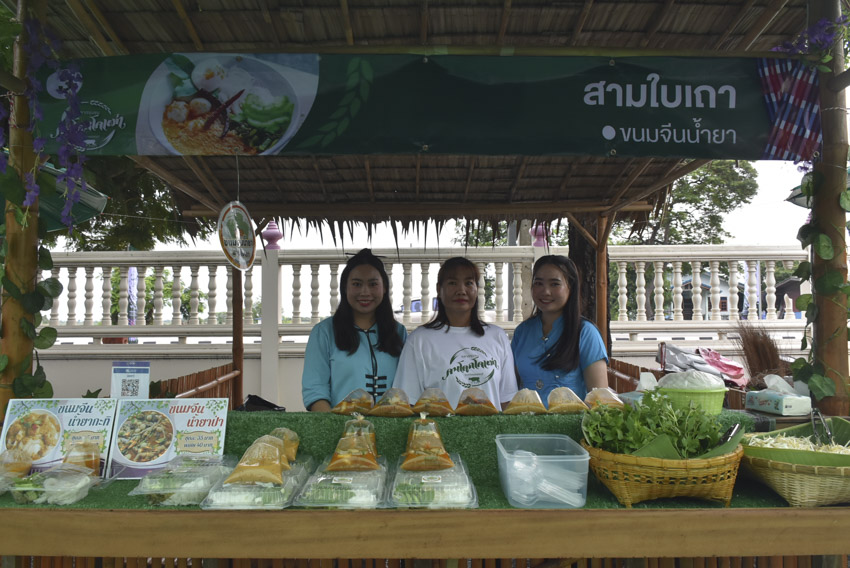
This multi-stakeholder collaboration—involving the university, local government, the temple, and the community—showcased how collective participation can support shared land ecosystem management. Participants cooperated in maintaining the market area, managing waste, and preserving the cleanliness of the site, ensuring that it remains a long-term space for sustainable community activities. The collaborative process fostered a sense of ownership and environmental responsibility among community members, aligning with the principles of environmental stewardshipand shared responsibility for the preservation of local ecosystems.
The outcomes of the initiative were both environmental and social. The market generated new income streams for local residents through the sale of safe and sustainable agricultural products, while also enhancing public awareness of biodiversity conservation and sustainable land use. The success of this project demonstrates the university’s ability to bridge academic innovation with community participation, transforming shared spaces into sustainable ecosystems that benefit both people and the planet.
Therefore, the “Khok Khok Thao Community Market” stands as direct policy evidence of Suan Dusit University’s collaborative efforts to maintain and enhance shared land ecosystems. The initiative illustrates how higher education institutions can work hand-in-hand with local communities to preserve biodiversity, strengthen cultural identity, and advance sustainable development through shared stewardship of land and natural resources. It exemplifies the integration of academic engagement, community empowerment, and environmental consciousness—core elements of a university committed to life on land.
Reference
